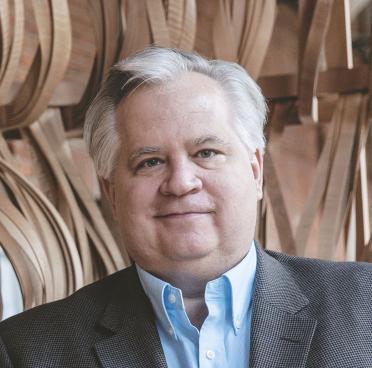
It’s time to let science do the talking
AHEC and the American hardwood industry have long welcomed increased market focus on environmental issues. A natural, renewable, legally harvested and sustainably sourced product with very low embodied energy, like American hardwood, has much to gain from increased market interest in these issues.
However, it has also been very disheartening to see the marketplace overwhelmed with “green washing” and dubious environmental claims, usually based on only one specific attribute such as “rapid renewability” for bamboo, or “recyclability” for steel or plastics. The true environmental impacts of materials cannot be summed up by one single attribute, and it is time that consumers and policy makers had the ability to truly compare the environmental footprint of the different products and materials they source.
That is why AHEC is encouraging the on-going movement towards a more science-centred approach to green specification and design using environmental Life Cycle Assessment (LCA). Although there is some way to go before LCA becomes a deciding factor in material specification throughout the world, there are clear signs of movement in this direction. Green building rating systems like BREEAM in the UK, HQE in France, and DGNB in Germany are becoming more widely used and all draw on LCA for allocating credits for building materials. Even the US-based LEED system, which is not exactly known for its embrace of science, is set to operate a “pilot” LCA based standard for materials sourcing. This reliance on science is long overdue. If green building systems and “green procurement” policies are to have any credibility, they MUST be based on science, and all materials producers MUST play by the same rules.
In 2010 AHEC commissioned the largest LCA study ever undertaken in the international hardwood sector. The independent assessment is being undertaken by PE International, a leader in the field of LCA, in accordance with the ISO14040 series of standards for LCA. It will include, as a discrete component, independent assessment of the “carbon footprint” of American hardwoods in line with carbon footprint standards such as the UK’s PAS 2050 standard and the international Green House Gas (GHG) Protocol. The study also involves the compilation of environmental life cycle inventory (LCI) data on the main American hardwood species from point of extraction in the US through to point of delivery as kiln dried sawn lumber or veneer in the EU and Asia. The study also includes a full life cycle impact assessment for a number of high priority finished construction and furniture products manufactured from American hardwoods in the international marketplace.
A major output of the study will be the preparation of Environmental Product Declarations (EPDs) for American hardwood products. If you have not yet heard of EPD’s, you soon will. EPDs look set to become an important tool for the communication of product-specific LCA data, and are designed to allow fair comparison of the environmental performance of products through provision of structured, science based, and verified data. EPDs provide information along the product's entire supply chain, are designed to be neutral with no value-based judgements, and are required to be verified for accuracy by an independent third party. An international standard - ISO 14025 – has been prepared providing guidance on the structure and content of EPDs.
The value of EPDs to the consumer and policy makers around the globe will be considerable. No longer will industries be able to get away with dubious environmental claims—the raw data will be laid out in a standardized fashion for all to see. It is AHEC’s goal that for once the wood products industry in general, and American hardwoods in particular, will be ahead of the curve and setting the bar from the beginning, and not simply playing defence as we have done too often in the past.
